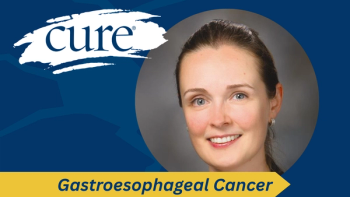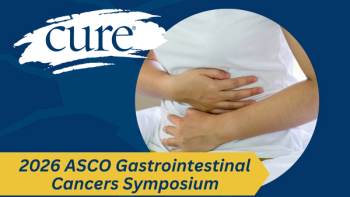
Genetic Counseling With Telemedicine Helps Patients in Community Practices
Patients who would otherwise not have access to genetic counseling at community-based medical centers can benefit from the use of remote phone or video technology to take advantage of these services, according to study results presented at the American Society of Clinical Oncology Annual Meeting in Chicago on June 1-4.
Patients who would otherwise not have access to genetic counseling at community-based medical centers can benefit from the use of remote phone or video technology to take advantage of these services, according to study results presented at the American Society of Clinical Oncology Annual Meeting in Chicago on June 1-4.
Genetic counselors can help patients better understand how genetic and familial risk contribute to cancer risk, make testing recommendations and provide guidance on how to translate test results. Testing — which includes screening for BRCA mutations linked to breast, ovarian, pancreatic and prostate cancers – helps doctors identify high-risk patients who may benefit from additional screening or other interventions.
While genetic testing and counseling is par for the course at many academic medical centers, the researchers noted that access to genetic service providers can be lacking at smaller community practices.
To determine if phone or videoconference technology could increase access to genetic testing, researchers from the Basser Center for BRCA at the University of Pennsylvania’s Abramson Cancer Center conducted a randomized, controlled trial of 115 patients from six community practices in Pennsylvania, New Jersey, Delaware and Maryland who were determined to be candidates for genetic testing. Patients received either video or phone counseling or usual care and were provided information on how to get genetic testing.
Of note, the study is ongoing and not all patients have reached the six-month evaluation period yet. Among the patients who have reached the study endpoint, 71 received remote sessions while 36 patients underwent usual care.
After six months, 55 patients (77 percent) who were offered remote genetic counseling services completed counseling, compared to just two of the 36 patients (six percent) in the usual care group.
Additionally, 55 percent of patients who received remote services proceeded to get genetic testing, which resulted in the identification of four genetic carriers (ATM, MUTYH and two with BRCA2). In the usual care group, 17 percent of patients underwent testing and no carriers were identified.
“It’s clear from this study that this telemedicine approach improves on what community practices can do on their own,” Angela R. Bradbury, M.D., lead author and assistant professor of Hematology-Oncology at the University of Pennsylvania, said in a press release.
He added that these results highlight the need for further studies to be conducted. “It’s noteworthy that just 56 percent of patients who underwent remote counseling went on to undergo genetic testing,” Bradbury added. “It shows we still have work to do to help equip patients with this information, which can be life-saving in some cases.”
In the usual care group who did not receive remote genetic counseling, Bradbury also noted the discrepancy between patients who underwent counseling and those who underwent testing should be addressed. “The data confirm that some people in community practices are getting testing without going through counseling first, and previous studies have shown that patients have lower levels of knowledge and lower satisfaction when that happens.”



